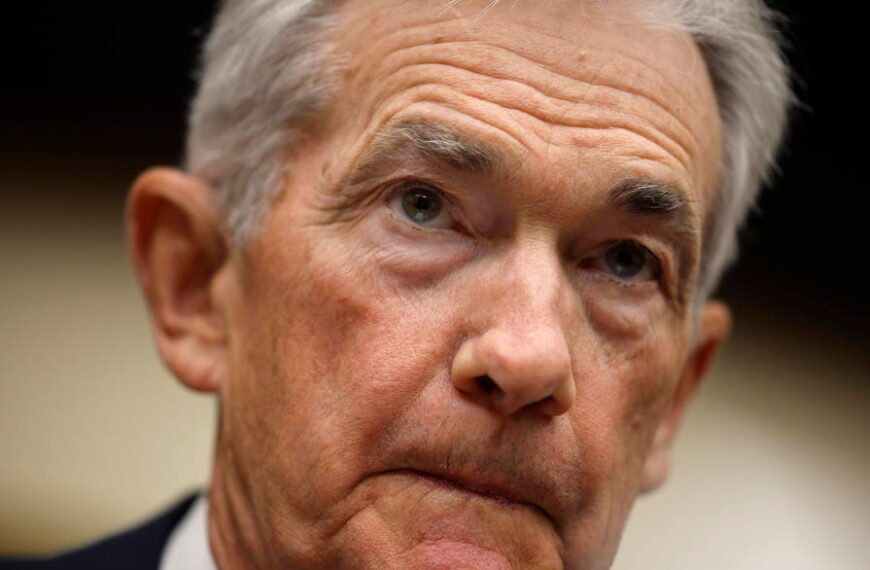Understanding the Concept of a Strategic Bitcoin Reserve
In recent years, Bitcoin has emerged as a significant asset class, attracting the attention of not only individual investors but also nation states. The idea of a strategic Bitcoin reserve is gaining traction, with proponents suggesting that countries should consider stockpiling Bitcoin alongside traditional assets like gold. This concept is rooted in the belief that Bitcoin can serve as a digital store of value, a hedge against inflation, and a potential safeguard during economic instability.
The Rationale Behind a Strategic Bitcoin Reserve
The proponents of a strategic Bitcoin reserve argue that holding Bitcoin can provide several advantages for nation states, such as:
Inflation Hedge: With central banks around the world adopting loose monetary policies, inflation rates have surged. Bitcoin, with its capped supply of 21 million coins, is seen as a deflationary asset that can protect purchasing power.
Global Acceptance: As Bitcoin gains wider acceptance across different sectors and countries, it becomes increasingly essential for nation states to hold this cryptocurrency to maintain economic competitiveness.
Digital Gold: Bitcoin is often referred to as “digital gold” due to its properties as a scarce and divisible asset. Like gold, it can serve as a safe haven during times of geopolitical uncertainty.
Technological Advancement: By embracing Bitcoin, nations can position themselves at the forefront of technological innovation, attracting talent and investment in blockchain and cryptocurrency-related industries.
How Can Nation States Hold Bitcoin?
For a nation state to effectively hold Bitcoin as part of its strategic reserve, several steps need to be taken:
1. Regulatory Framework
The first step involves establishing a clear and comprehensive regulatory framework for cryptocurrencies. This framework should address issues such as:
Taxation: Setting up guidelines on how Bitcoin will be taxed can encourage investment and adoption.
Security Measures: Developing regulations to protect against hacks and fraud is crucial for safeguarding national reserves.
Compliance: Ensuring that the acquisition and storage of Bitcoin comply with international financial regulations.
2. Acquisition Strategies
Once a regulatory framework is in place, nation states can explore various acquisition strategies for Bitcoin, including:
Direct Purchase: Governments can buy Bitcoin directly from exchanges or over-the-counter markets.
Mining Operations: Some countries may choose to invest in Bitcoin mining operations, leveraging their energy resources to mine the cryptocurrency.
Partnerships with Private Sector: Collaborating with private firms specializing in cryptocurrencies can help governments acquire Bitcoin at favorable terms.
3. Secure Storage Solutions
The security of Bitcoin reserves is paramount. Nation states should consider the following storage solutions:
Cold Storage: Storing Bitcoin offline using cold wallets minimizes the risk of hacks.
Multi-Signature Wallets: Implementing multi-signature wallets adds an extra layer of security, requiring multiple approvals for transactions.
Regular Audits: Conducting regular audits of Bitcoin holdings ensures transparency and accountability.
The Global Landscape of Bitcoin Reserves
While the concept of a strategic Bitcoin reserve is still in its infancy, some nation states are already exploring or implementing this strategy. Countries such as El Salvador have made headlines for adopting Bitcoin as legal tender, showcasing a commitment to integrating cryptocurrency into their economies.
Case Studies
Here are a few examples of how nation states are engaging with Bitcoin:
El Salvador: The first country to officially adopt Bitcoin as legal tender, El Salvador aims to boost financial inclusion and attract foreign investment.
Central African Republic: Recently, the Central African Republic adopted Bitcoin as legal tender, attempting to leverage the cryptocurrency for economic development.
Ukraine: Amid conflict, Ukraine has actively embraced Bitcoin and other cryptocurrencies for fundraising efforts, demonstrating their utility in crisis situations.
Challenges and Considerations
Despite the potential benefits of holding a strategic Bitcoin reserve, there are several challenges that nation states must consider:
Volatility: Bitcoin’s price is notoriously volatile, which could pose risks to national reserves. Countries must develop strategies to manage this volatility.
Infrastructure: The lack of adequate infrastructure for buying, storing, and managing Bitcoin can hinder adoption.
Public Perception: Governments must educate the public about Bitcoin and its benefits to foster acceptance and trust.
The Future of Strategic Bitcoin Reserves
As the cryptocurrency landscape continues to evolve, the idea of a strategic Bitcoin reserve is likely to gain prominence. As more countries recognize the potential of Bitcoin as a significant asset, the global economic landscape may shift.
In conclusion, the strategic accumulation of Bitcoin by nation states could redefine how governments manage their financial reserves. By recognizing Bitcoin’s potential as a digital asset similar to gold, countries can harness its benefits while addressing the challenges that come with its adoption. The future may well see a world where Bitcoin is a standard component of national reserves, paving the way for a new era in global finance.





